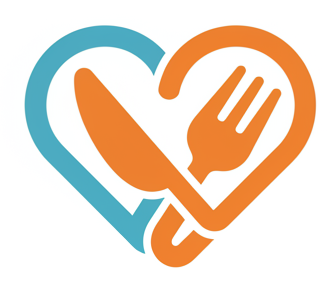Feeling lonely can be tough and isolating. But, it’s important to know you’re not alone. Many people face loneliness, and there are ways to deal with it. It affects our mental and physical health, so finding connections is key.
Understanding the need for human connection helps fight loneliness. By spotting loneliness signs and building real relationships, we can live better. Learning to cope with loneliness is a journey that’s worth it for our well-being.

When we tackle loneliness, we must be kind and understanding. This way, we can build a space where everyone feels safe to talk and connect. In this article, we’ll dive into loneliness, including how to cope, and offer tips for a more connected life.
Introduction to Overcoming Loneliness
Beating loneliness needs a full approach that covers emotions, social life, and mind. By offering a supportive and accepting place, we help people face their loneliness. Together, we can find ways to deal with it.
Key Takeaways
- Learning how to cope with loneliness is a process that takes time and effort
- Understanding the importance of human connection is key to addressing loneliness
- Recognizing the signs of loneliness is crucial to taking steps towards a more fulfilling life
- Building meaningful relationships can help overcome loneliness
- Creating a supportive environment encourages open discussion and connection
- Developing strategies to cope with loneliness is essential for improving overall well-being
Understanding the Nature of Loneliness
Managing loneliness and isolation is key to good mental health. Loneliness is a complex, personal experience. It’s important to understand its nature and how it affects us. By knowing the different types of loneliness, we can tackle it better and find ways to cope.
There are two main types of loneliness: chronic and situational. Chronic loneliness lasts a long time, often due to lack of social interaction or trouble forming close bonds. Situational loneliness is short-term, usually caused by big life changes like moving or losing someone close. Knowing these differences helps us manage loneliness more effectively.
Different Types of Loneliness
- Chronic loneliness: a long-term experience of social isolation
- Situational loneliness: a temporary experience, often triggered by significant life events
Common Triggers and Causes
Loneliness can be caused by many things, like being alone, mental health issues, or big life changes. By recognizing these causes, we can take steps to avoid or lessen loneliness. This helps improve our overall well-being and ability to handle isolation.
The Impact on Mental Health
Loneliness can seriously harm our mental health. Chronic loneliness can increase the risk of depression and anxiety. It’s crucial to manage loneliness and deal with isolation to keep our mental health strong.
Recognizing the Signs of Social Isolation
To avoid social isolation, it’s key to spot the signs early. These signs can be small but important. They include pulling back from friends, losing interest in hobbies, and mood swings.
Being aware of these signs helps us support those feeling isolated. We can make a big difference in their lives.
Some common signs of social isolation include:
- Withdrawal from social activities, such as avoiding parties or gatherings
- Decreased interest in hobbies or activities that were once enjoyed
- Changes in mood, such as feeling sad, anxious, or irritable
- Changes in appetite or sleep patterns
- Loss of interest in personal appearance or hygiene
When someone shows signs of social isolation, we should be kind and supportive. This helps them feel less alone. To fight social isolation, we must stay in touch with loved ones, join in social events, and take care of ourselves.
By spotting the signs of social isolation and offering support, we build a more caring community. This helps people stay connected and feel better overall.
The Science Behind How to Cope with Loneliness
It’s key to understand the science of loneliness to find good ways to deal with it. Loneliness can really hurt our mental health, leading to depression and anxiety. Knowing the psychological, biological, and social reasons for loneliness helps us cope better.
Attachment theory is important in understanding loneliness. People with insecure attachment styles often feel lonely. Biological effects of loneliness are also serious, causing stress, weak immune systems, and even early death. Being alone in big cities and overusing technology can also make us feel isolated.
Psychological Perspectives
- Attachment theory: insecure attachment styles can lead to loneliness
- Cognitive-behavioral therapy: can help individuals change negative thought patterns and behaviors
- Social learning theory: learning social skills and behaviors can help individuals connect with others
Biological Effects of Loneliness
Long-term loneliness can harm our health, causing stress, weak immune systems, and even early death. It’s vital to find ways to fight loneliness to protect our health.
Social Factors Contributing to Isolation
Things like living in big cities and using too much technology can make us feel alone. But, knowing these factors helps us find ways to fight loneliness and improve our mental health.
| Factor | Effect on Loneliness |
|---|---|
| Urbanization | Increased isolation and loneliness |
| Technology use | Decreased face-to-face interaction and increased loneliness |
| Social support | Decreased loneliness and improved mental health |
Building a Self-Care Foundation
Creating a self-care routine is key to dealing with loneliness. Simple daily practices can help you fight loneliness. Self-care is vital for keeping your mind and heart healthy.
Effective self-care includes mindfulness, like meditation and deep breathing. Regular exercise and healthy eating are also important. These habits can lower stress and anxiety, common causes of loneliness. A self-care routine gives you a sense of purpose, helping to beat loneliness and isolation.
- Start small: Begin with short, manageable self-care activities, such as taking a short walk or practicing deep breathing exercises.
- Be consistent: Aim to practice self-care regularly, ideally at the same time each day.
- Find what works for you: Experiment with different self-care activities to find what brings you joy and relaxation.
Building a self-care foundation helps you deal with loneliness better. With the right support and strategies, you can overcome loneliness and live a fulfilling life.
Developing Meaningful Social Connections
Building strong social connections is key to fighting loneliness. Finding a community with similar interests helps. This way, you can create a support network that fights isolation. Joining clubs, volunteering, or group activities are great ways to do this.
Here are some effective ways to make social connections:
- Participating in group hobbies or classes
- Volunteering for a cause you care about
- Joining a social club or organization that aligns with your interests
Creating new relationships and deepening old ones is vital. Being open to new experiences and people can grow your social circle. Regular talks and activities can make your relationships stronger, reducing loneliness.
By using these techniques daily, you can build a strong support network. Remember, making meaningful connections takes time and effort. It’s a key step to good mental health and well-being.
| Technique | Description |
|---|---|
| Joining a social club | Meet new people with similar interests |
| Volunteering | Give back to the community and meet like-minded individuals |
| Group hobbies | Engage in activities with others who share similar passions |
Digital Solutions for Modern Connection
In today’s digital age, finding loneliness relief is easier than ever. Social media, online forums, and video apps let people connect worldwide. These tools help build and keep relationships, no matter where you are.
Some popular digital platforms for social connection include:
- Social media groups, where people can join communities based on shared interests
- Online forums, where individuals can discuss topics and connect with others who share similar experiences
- Video conferencing apps, which enable face-to-face communication and virtual meetups
These digital solutions offer many benefits, like being easy to use and accessible. But, it’s key to balance digital and in-person connections for true well-being and loneliness relief.

By using these digital tools, people can grow their social circles and form deep connections. They can find loneliness relief in a way that fits their life and preferences.
Mindfulness and Mental Health Practices
Practicing mindfulness can greatly improve mental health and reduce loneliness. It helps people stay in the moment, lowering stress and anxiety. This leads to better overall well-being. Techniques like meditation and deep breathing increase self-awareness and acceptance.
Studies show that regular mindfulness can lessen depression and anxiety symptoms. These are common with loneliness. By making mindfulness a part of daily life, people feel more connected to themselves and others. This reduces loneliness.
- Reduced stress and anxiety
- Improved mood and emotional regulation
- Increased self-awareness and self-acceptance
- Enhanced sense of connection to oneself and others
Journaling and positive affirmations also help with mental health and loneliness. They let people understand themselves better and build better relationships with others.
Mindfulness and mental health practices are a complete way to fight loneliness. By adding these to daily routines, people can feel more connected and fulfilled. This improves their mental health and reduces loneliness’s negative effects.
| Practice | Benefits |
|---|---|
| Meditation | Reduced stress and anxiety, improved mood |
| Journaling | Increased self-awareness, improved emotional regulation |
| Positive Affirmations | Enhanced sense of self-worth, improved relationships |
Creating a Fulfilling Solo Lifestyle
Living alone can be freeing, letting you grow and explore your interests. To make the most of it, add coping strategies for loneliness to your routine. Try activities like reading, gardening, or learning something new.
Here are some fun solo activities to consider:
- Painting or drawing
- Cooking or baking
- Playing a musical instrument
- Practicing yoga or meditation
- Writing or journaling
Doing these activities daily can give you a sense of purpose. It helps you feel less lonely. As
people who live alone or spend a lot of time by themselves, finding activities that make you happy is key
. This way, you can enjoy a life full of experiences and connections.

Building a fulfilling solo life takes work, but it’s worth it. By choosing solo activities and using coping strategies for loneliness, you can feel more connected and fulfilled. This leads to a happier, more meaningful life.
| Solo Activity | Benefits |
|---|---|
| Reading | Reduces stress, improves focus, and expands knowledge |
| Gardening | Provides exercise, fresh air, and a sense of accomplishment |
| Learning a new skill | Boosts confidence, improves cognitive function, and enhances career prospects |
Professional Support and Resources
For those struggling with loneliness, getting professional help is key. It’s important to use a mix of therapy and support systems. This way, you can learn to handle your feelings and find ways to cope.
Therapies like cognitive-behavioral therapy (CBT) and interpersonal therapy (IPT) can really help. They work on changing negative thoughts and improving how you talk to others. This can help you make better connections with people.
Therapy Options
- Cognitive-behavioral therapy (CBT)
- Interpersonal therapy (IPT)
- Group therapy
Support Groups
Support groups, both in-person and online, are great for feeling connected. They’re places where you can share your story, get support, and learn from others. It’s a safe space to be yourself.
Online Resources
| Resource | Description |
|---|---|
| National Alliance on Mental Illness (NAMI) | Provides education, support, and advocacy for individuals and families affected by mental illness |
| Crisis Text Line | Offers 24/7 text messaging support for individuals in crisis |
Using these professional resources can help you manage loneliness better. It can also improve your mental health and overall well-being.
Transforming Loneliness into Personal Growth
Turning loneliness into personal growth is a powerful move. People can grow from loneliness by setting goals, being kind to themselves, and facing challenges. This journey helps them overcome loneliness and find a more rewarding life.
To overcome loneliness, focusing on personal growth is key. Here are some strategies:
- Setting realistic and achievable goals
- Practicing self-compassion and self-care
- Embracing challenges and stepping out of your comfort zone
Many have overcome loneliness and grown personally. Their stories inspire others, showing loneliness can lead to growth. By using these strategies and staying dedicated to growth, people can overcome loneliness and live a more fulfilling life.
Conclusion: Embracing Connection and Moving Forward
As we finish our journey through loneliness, remember you’re not alone. Loneliness is something everyone faces. With the right help, you can beat it.
We’ve looked at what loneliness is, how to spot it, and ways to fight it. We’ve talked about making friends and taking care of yourself. These steps can lead to a happier, more connected life.
Now, it’s time to start moving forward. Talk to your friends, join a group, or get help if you need it. Your value isn’t lost because you feel lonely. It’s a feeling that can change with action and a desire for connection.
Keep going on your journey, knowing you’re not alone. There are many resources and communities ready to support you. Believe in your growth and know you’re getting closer to a life full of meaningful connections and belonging.
Disclaimer: This article is for informational purposes only and does not constitute medical advice. Always consult a healthcare professional before starting a new exercise or wellness routine
FAQ
What are the different types of loneliness?
Loneliness can be divided into several types. Chronic loneliness is a long-lasting feeling of being alone. Situational loneliness happens due to life events or changes. Emotional loneliness is when you lack close, meaningful relationships.
What are the common triggers and causes of loneliness?
Many things can trigger loneliness. This includes the end of a relationship or losing a loved one. Moving to a new place, retirement, or feeling isolated can also cause it. Social, cultural, and environmental factors, like living in cities or using too much technology, play a role too.
How does loneliness impact mental health?
Loneliness can lead to depression, anxiety, and other mental health problems. It can make you think negatively, feel bad about yourself, and even harm your physical health. It’s key to tackle loneliness to keep your mental health strong.
What are the signs of social isolation?
Signs of social isolation include pulling back from friends and activities. You might lose interest in things you used to enjoy. Mood swings, appetite changes, and feeling disconnected from others are also signs. Recognizing these in yourself or others is important, and seeking help is crucial.
How can self-care help in coping with loneliness?
Self-care is vital in fighting loneliness. It includes activities like mindfulness, exercise, and eating well. These habits help manage stress, boost your mood, and give you a sense of purpose.
How can I find and build meaningful social connections?
Joining groups based on hobbies or volunteering is a good start. Being open to new experiences and people helps in building relationships. Keeping in touch with friends and family through regular activities is also important.
What are some digital solutions for overcoming loneliness?
Digital tools like social media groups and video calls can help you connect. But, it’s important to balance online and in-person interactions. Over-relying on technology can make loneliness worse.
How can mindfulness and mental health practices help in coping with loneliness?
Mindfulness, meditation, and journaling can reduce stress and improve your mood. These practices help you feel more connected. They are powerful tools against loneliness.
How can I create a fulfilling solo lifestyle?
Enjoying solo activities like reading or gardening can bring joy. Embracing solitude and finding personal fulfillment in these activities is key. It helps build a fulfilling life on your own.
What professional support and resources are available for those dealing with loneliness?
There are many professional options, like therapy and support groups. Cognitive-behavioral therapy (CBT) and interpersonal therapy (IPT) can help. Online resources, hotlines, and websites also offer support for loneliness.







